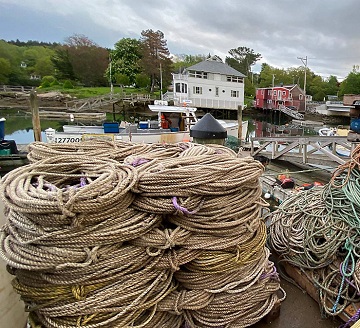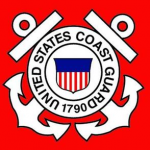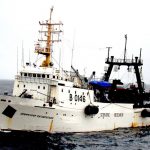Tag Archives: Maine lobstermen
Maine lobstermen worried about cuts to how much herring they can catch for bait
 Fishermen in Maine say they’re dealing with a new setback: a nearly 90 percent cut in how much herring they can bring in to bait lobster. Congressman Jared Golden says he’s opposed to the limit, which would reduce the herring catch by 89 percent over three years. “What was troubling with this decision is there was no impact study done to us as fishermen, just an environmental study that was based on essentially one year of a proper study, to have implications to destroy an entire economic sector of Maine,” fisherman Ryan Raber said. Video, more, >>CLICK TO READ<< 06:19
Fishermen in Maine say they’re dealing with a new setback: a nearly 90 percent cut in how much herring they can bring in to bait lobster. Congressman Jared Golden says he’s opposed to the limit, which would reduce the herring catch by 89 percent over three years. “What was troubling with this decision is there was no impact study done to us as fishermen, just an environmental study that was based on essentially one year of a proper study, to have implications to destroy an entire economic sector of Maine,” fisherman Ryan Raber said. Video, more, >>CLICK TO READ<< 06:19
Regulators delay increase in minimum lobster size till July
 Regulators formally delayed increasing the minimum size of lobsters harvested in the Gulf of Maine to July. The Atlantic States Marine Fisheries Commission, the regulatory body that oversees the fishing industry, voted Monday to delay the resolution by six months. The changes were previously slated to take effect in January, but opponents have argued it would give Canadian lobstermen – unimpacted by the change, though they share the waters – an unfair advantage in the market. Lobstermen also have claimed the change could practically eliminate the harvest of some of the industry’s most popular lobster sizes. more, >>CLICK TO READ<< 21:06
Regulators formally delayed increasing the minimum size of lobsters harvested in the Gulf of Maine to July. The Atlantic States Marine Fisheries Commission, the regulatory body that oversees the fishing industry, voted Monday to delay the resolution by six months. The changes were previously slated to take effect in January, but opponents have argued it would give Canadian lobstermen – unimpacted by the change, though they share the waters – an unfair advantage in the market. Lobstermen also have claimed the change could practically eliminate the harvest of some of the industry’s most popular lobster sizes. more, >>CLICK TO READ<< 21:06
Bill to Support Maine’s Lobster Industry Clears Appropriations Committee
 U.S. Senator Susan Collins, Vice Chair of the Senate Appropriations Committee, announced that she advanced significant funding and key language to support Maine’s lobster industry in the Fiscal Year (FY) 2025 Commerce, Justice, Science, and Related Agencies (CJS) Appropriations bill. The bill, which was officially approved by the Senate Appropriations Committee today, now awaits consideration by the full Senate and House. “This funding would support Maine’s lobster industry by improving the incomplete and imprecise science and research upon which the federal government relies. The flawed and incomplete data being used to inform regulations has created unnecessary, burdensome requirements for Maine lobstermen and women,” said Senator Collins. “As the Vice Chair of the Appropriations Committee, I will continue to advocate for this funding as the appropriations process moves forward.” more, >>CLICK TO READ<< 05:57
U.S. Senator Susan Collins, Vice Chair of the Senate Appropriations Committee, announced that she advanced significant funding and key language to support Maine’s lobster industry in the Fiscal Year (FY) 2025 Commerce, Justice, Science, and Related Agencies (CJS) Appropriations bill. The bill, which was officially approved by the Senate Appropriations Committee today, now awaits consideration by the full Senate and House. “This funding would support Maine’s lobster industry by improving the incomplete and imprecise science and research upon which the federal government relies. The flawed and incomplete data being used to inform regulations has created unnecessary, burdensome requirements for Maine lobstermen and women,” said Senator Collins. “As the Vice Chair of the Appropriations Committee, I will continue to advocate for this funding as the appropriations process moves forward.” more, >>CLICK TO READ<< 05:57
State backs lobstermen in urging regulators to reevaluate changes to minimum size
 The rules, which are set to go into effect on Jan. 1, 2025, will increase the minimum size from 3 1/4 inches to 3 5/16 inches, on the gauges that lobstermen use to measure lobsters and determine whether they are allowed to harvest them. A second increase would take effect two years later, bringing the minimum to 3 3/8 inches. The rules also affect the vents in traps that allow undersized lobsters to escape. The Atlantic States Marine Fisheries Commission says it is making the changes to preserve the long-term future of the lobster population in the Gulf of Maine, which federal data show has sharply dropped. Lobstermen also question the accuracy of the federal data – saying that it was corrected over a small and abnormal time frame that doesn’t indicate the reality of population trends. more, >>CLICK TO READ<< 06:23
The rules, which are set to go into effect on Jan. 1, 2025, will increase the minimum size from 3 1/4 inches to 3 5/16 inches, on the gauges that lobstermen use to measure lobsters and determine whether they are allowed to harvest them. A second increase would take effect two years later, bringing the minimum to 3 3/8 inches. The rules also affect the vents in traps that allow undersized lobsters to escape. The Atlantic States Marine Fisheries Commission says it is making the changes to preserve the long-term future of the lobster population in the Gulf of Maine, which federal data show has sharply dropped. Lobstermen also question the accuracy of the federal data – saying that it was corrected over a small and abnormal time frame that doesn’t indicate the reality of population trends. more, >>CLICK TO READ<< 06:23
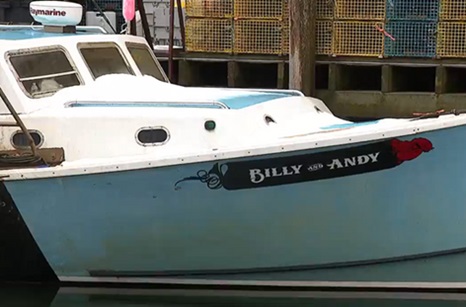
‘I’m not going to hang around:’ Some Maine lobstermen decide to quit over new regulations
Some lobstermen have decided the paperwork, and more harsh future regulations, aren’t worth it. Bill Coppersmith’s lobster boat is named the “Billy and Andy.” He stopped lobstering the day new reporting requirements started. “Forty-three years of doing it, I took the last of my gear out of the water on New Year’s Day. And I said, ‘That’s probably it,'” Coppersmith said. “It’s come to be too restrictive to go. It creates more work. And I can’t create any more revenue because of the restrictions they’re putting on here.” Lobstermen are also now required to keep a tracking device on board so the Atlantic States Commission can track their movements in the Gulf of Maine. Coppersmith says that’s an invasion of privacy. Video, more, >>click to read<< 06:26
Maine lobstermen will not be scapegoated over right whale
 New England fishermen are bracing themselves for another salvo of regulation and activist pressure after the tragic entanglement death of a right whale that washed ashore on Martha’s Vineyard. While the future of our fisheries is uncertain, 2023 showed how much resilience and determination there is in our maritime communities. My organization – the New England Fishermen’s Stewardship Association – and our many partners are prepared to ward off any attempt to scapegoat Maine lobstermen for the declining population of the majestic right whale. Regulators and out-of-state agitators are together impugning one of the most sustainable fisheries in the world for right whale deaths. Their claims are baseless and contradicted by their own data. As agencies and NGOs ponder next steps, they might consider the fighting spirit this last year has showcased among fishermen. more, >>click to read<< by Dustin Delano 12:06
New England fishermen are bracing themselves for another salvo of regulation and activist pressure after the tragic entanglement death of a right whale that washed ashore on Martha’s Vineyard. While the future of our fisheries is uncertain, 2023 showed how much resilience and determination there is in our maritime communities. My organization – the New England Fishermen’s Stewardship Association – and our many partners are prepared to ward off any attempt to scapegoat Maine lobstermen for the declining population of the majestic right whale. Regulators and out-of-state agitators are together impugning one of the most sustainable fisheries in the world for right whale deaths. Their claims are baseless and contradicted by their own data. As agencies and NGOs ponder next steps, they might consider the fighting spirit this last year has showcased among fishermen. more, >>click to read<< by Dustin Delano 12:06
Maine lobstermen made more money in 2023 despite catching fewest lobster in 15 years
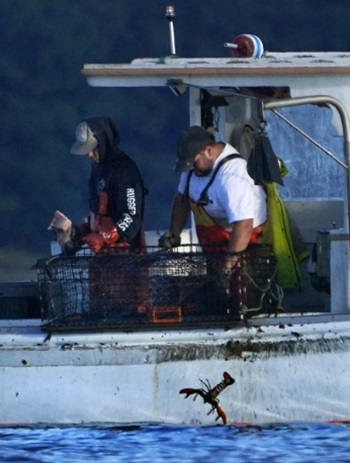 Maine lobstermen raked in $464.4 million at the docks last year, rebounding from the worst year the fishery had seen in a decade, according to an annual report from the Maine Department of Marine Resources released Friday. The dwindling number of landings isn’t necessarily a surprise, though. State officials and members of the lobstering community say the decrease reflects the impacts of high costs to operate the fishery last year. And the dip in poundage indicates how lobstermen navigated the challenging obstacles.“Fishermen are now very strategic about how they fish. Expenses are through the roof, so you can’t afford to be out if you’re not making money,” said Patrice McCarron, a lobsterman and policy director with the Maine Lobstermen’s Association. more, >>click to read<< 16:26
Maine lobstermen raked in $464.4 million at the docks last year, rebounding from the worst year the fishery had seen in a decade, according to an annual report from the Maine Department of Marine Resources released Friday. The dwindling number of landings isn’t necessarily a surprise, though. State officials and members of the lobstering community say the decrease reflects the impacts of high costs to operate the fishery last year. And the dip in poundage indicates how lobstermen navigated the challenging obstacles.“Fishermen are now very strategic about how they fish. Expenses are through the roof, so you can’t afford to be out if you’re not making money,” said Patrice McCarron, a lobsterman and policy director with the Maine Lobstermen’s Association. more, >>click to read<< 16:26
War On Maine’s Lobstermen?
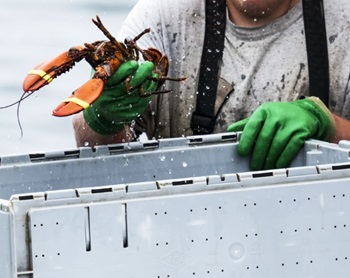 If you want an emblem of the “man’s man,” larger than life, daring and doing, self-reliant, depend-on-nature, a make-it-happen guy, who rises with the dawn, works hard, asks little, wants little, values independence, and will never fly a desk… that’s the Maine lobsterman or woodsman. Now, they are being scapegoated for wind farms – or some other cause – apparently killing Right whales. Go figure. A more cynical irony is hard to imagine. The wind subsidy crowd, sure they will make money off the taxpayer-funded “green wave” with gold at the end of a government-funded rainbow, has decided – in Washington and “activist cells” around America – to hit Maine’s lobstermen. Wrong. more, >>click to read<< by Robert B. Charles 07:17
If you want an emblem of the “man’s man,” larger than life, daring and doing, self-reliant, depend-on-nature, a make-it-happen guy, who rises with the dawn, works hard, asks little, wants little, values independence, and will never fly a desk… that’s the Maine lobsterman or woodsman. Now, they are being scapegoated for wind farms – or some other cause – apparently killing Right whales. Go figure. A more cynical irony is hard to imagine. The wind subsidy crowd, sure they will make money off the taxpayer-funded “green wave” with gold at the end of a government-funded rainbow, has decided – in Washington and “activist cells” around America – to hit Maine’s lobstermen. Wrong. more, >>click to read<< by Robert B. Charles 07:17
Maine Lobstermen Ask Court to Block State Agency from Enforcing a 24-Hour Location Monitoring Mandate Pending the Resolution of Their Lawsuit
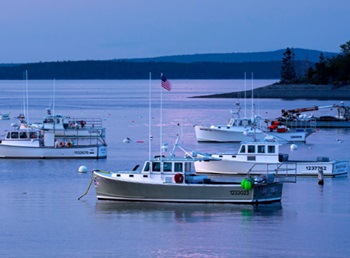 A group of Maine lobstermen have asked the United States District Court for the District of Maine to temporarily block state officials from enforcing the controversial requirement that lobstering boats be equipped with a 24-hour location monitoring system. At the beginning of January, five Maine lobstermen filed a lawsuit against the Maine Department of Marine Resources (MDMR) Commissioner Patrick Keliher, alleging violations of their Fourth and Fourteenth Amendment rights. “Before the Court is an unprecedented regulation that, if permitted to stand, would require federally permitted Maine lobster fishermen to install a tracking device on their fishing vessels that would monitor their movements on a minute-by-minute basis (and every six hours when the vessel is moored) ‘regardless of landing state, trip type, location fished or target species,’” the motion reads. more, >>click to read<< 06:44
A group of Maine lobstermen have asked the United States District Court for the District of Maine to temporarily block state officials from enforcing the controversial requirement that lobstering boats be equipped with a 24-hour location monitoring system. At the beginning of January, five Maine lobstermen filed a lawsuit against the Maine Department of Marine Resources (MDMR) Commissioner Patrick Keliher, alleging violations of their Fourth and Fourteenth Amendment rights. “Before the Court is an unprecedented regulation that, if permitted to stand, would require federally permitted Maine lobster fishermen to install a tracking device on their fishing vessels that would monitor their movements on a minute-by-minute basis (and every six hours when the vessel is moored) ‘regardless of landing state, trip type, location fished or target species,’” the motion reads. more, >>click to read<< 06:44
Maine lobstermen catch ancient 7-foot anchor while hauling traps
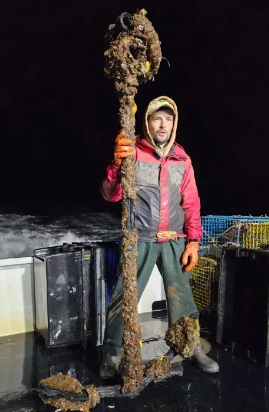 A pair of midcoast lobstermen were almost done hauling traps Tuesday when they pulled some ancient history out of the depths: A large anchor covered in a thick layer of rust and sea coral had snagged on one of their traps. “It was kind of exciting,” recalled Logan Aiken, who serves as sternman on Sweet Victory, the lobster boat owned and captained by his brother Peter. This was not the first time the brothers who fish out of Cushing. had caught an old anchor: They pulled up another one a few years ago, but it fell back into the sea before they could wrangle it in. This time around, they avoided that mistake by quickly slipping a line around the iron beast and yanking it into the boat. >>click to read<< 19:18
A pair of midcoast lobstermen were almost done hauling traps Tuesday when they pulled some ancient history out of the depths: A large anchor covered in a thick layer of rust and sea coral had snagged on one of their traps. “It was kind of exciting,” recalled Logan Aiken, who serves as sternman on Sweet Victory, the lobster boat owned and captained by his brother Peter. This was not the first time the brothers who fish out of Cushing. had caught an old anchor: They pulled up another one a few years ago, but it fell back into the sea before they could wrangle it in. This time around, they avoided that mistake by quickly slipping a line around the iron beast and yanking it into the boat. >>click to read<< 19:18
Dec 15 deadline nears for lobster boat tracking devices in federal waters
![]() Maine lobstermen who fish in federal waters have only a few weeks left until the Dec. 15 deadline to install and activate recently distributed tracking devices on their boats to comply with a regulation of the Atlantic State Marine Fisheries Commission (ASMFC). The Particle One devices were sent by Maine’s Department of Marine Resources (DMR) with an accompanying letter of explanation. As required by the ASMFC regulation approved last year, each minute the boat is moving, the tracker will collect both the time and its position. The device will also monitor a boat when it is tied up every six hours until it moves again. Local lobstermen are concerned monitoring their locations infringes on their privacy, while ASMFC believes it will be useful information to have. Some lobstermen have returned the trackers to DMR. >>click to read<< 13:02
Maine lobstermen who fish in federal waters have only a few weeks left until the Dec. 15 deadline to install and activate recently distributed tracking devices on their boats to comply with a regulation of the Atlantic State Marine Fisheries Commission (ASMFC). The Particle One devices were sent by Maine’s Department of Marine Resources (DMR) with an accompanying letter of explanation. As required by the ASMFC regulation approved last year, each minute the boat is moving, the tracker will collect both the time and its position. The device will also monitor a boat when it is tied up every six hours until it moves again. Local lobstermen are concerned monitoring their locations infringes on their privacy, while ASMFC believes it will be useful information to have. Some lobstermen have returned the trackers to DMR. >>click to read<< 13:02
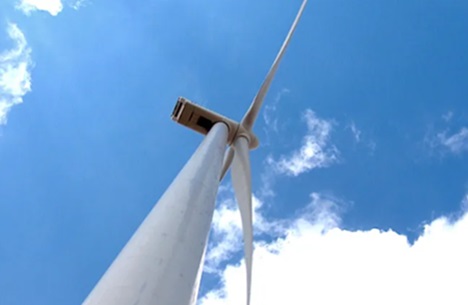
Fishermen in Maine lobbied to keep wind farms out of crucial fishing grounds. Will it happen in N.S.?
A no-compromise lobbying campaign by Maine lobster harvesters has helped keep wind farms out of a crucial lobster fishing area in the Gulf of Maine. And that has some fishermen in Nova Scotia casting an envious eye south of the border. “I’m pleased to see that happen in Maine. We’d like to see the same sort of diligence taken in Nova Scotia,” said Tommy Amirault, a fisherman from Pubnico and president of the Coldwater Lobster Association. “Maine obviously has concerns. It would be nice to  see both provincial and federal governments take our concerns into practice,” Amirault said. “We didn’t mince words that we opposed offshore wind anywhere in the Gulf of Maine. It’s one of the most productive ecosystems in the world. And we really didn’t think that this is the place to solve the renewable energy crisis,” said McCarron. In Nova Scotia, the process has just begun. He said it’s no surprise fishermen have concerns about where it happens. >>click to read<< 06:57
see both provincial and federal governments take our concerns into practice,” Amirault said. “We didn’t mince words that we opposed offshore wind anywhere in the Gulf of Maine. It’s one of the most productive ecosystems in the world. And we really didn’t think that this is the place to solve the renewable energy crisis,” said McCarron. In Nova Scotia, the process has just begun. He said it’s no surprise fishermen have concerns about where it happens. >>click to read<< 06:57
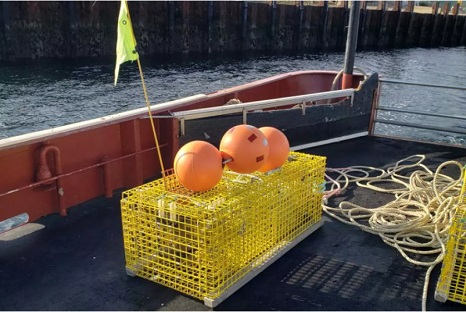
NOAA wants to expand ‘ropeless’ fishing gear pilot to include some Maine lobstermen
Last winter as part of a pilot project, some Massachusetts lobstermen were allowed to fish in areas that are seasonally closed to protect endangered North Atlantic right whales. But they had to use so-called “on-demand” or “ropeless” fishing gear and work with the National Oceanic and Atmospheric Administration to share their feedback. Now NOAA wants to expand the program to include lobster and other fixed-gear fishermen throughout New England. Federal officials have proposed issuing permits to more than 200 people, with priority given to those who fish closed areas during the winter. More than 100 people in Maine fish those closed areas. And fishermen aren’t thrilled with the idea of opening access to only some of them, said Patrice McCarron of the Maine Lobstermen’s Association — unless there’s enough on-demand gear to go around to everyone. >click to read< 10:00

Federal judges: Data does not prove Maine lobstering endangers whales
Friday, a panel of judges ruled that data on entanglements in lobster fishing gear does not support the need for the new strict limits on where and how lobstermen could fish. Those regulations, set by the National Marine Fisheries Service, were put in place under the authority of the Endangered Species Act to protect the 340 North Atlantic Right Whales whales left. The Maine Lobstermen’s Association says there is no evidence of Maine lobster gear ever killing a whale. There has been no documented entanglement of a North Atlantic Right Whale since 2004. “Every lobsterman in Maine was facing a decision of whether or not they would be able to continue in the fishery,” MLA policy director Patrice McCarron said. Video, >click to read< 08:55
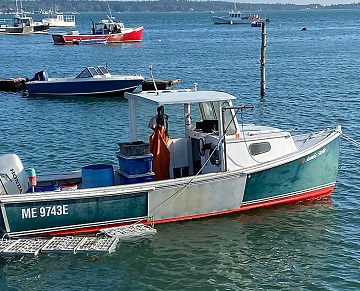
Maine bill to pay lobstermen to test new gear gets initial Senate approval
The bill seeks to set aside $1 million a year for the next two years to help lobstermen comply with federal regulations that could kick-in within six years. Following the Senate vote on Tuesday, bill sponsor Sen. Eloise Vitelli (D-Arrowsic) said federal regulators have “targeted Maine’s lobster industry as a scapegoat.” “The bipartisan fight against these untenable regulations is ongoing,” she said in a statement. “This bill will help make sure that lobstermen are prepared for what might be on the horizon.” Vitelli’s bill, which faces additional House and Senate votes, would provide stipends to reimburse lobstermen for time they spend testing gear. >click to read< 09:05
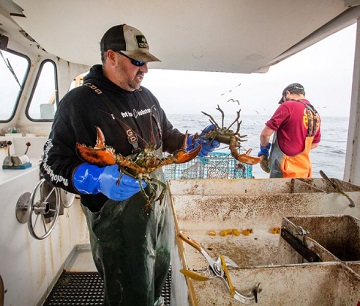
Canadian and American lobster industry confronts ‘ropeless’ traps after whale entanglements
Injuries to endangered North Atlantic Right Whales ensnared in fishing gear have fueled a prominent campaign by environmental groups to pressure the industry to adopt on-demand equipment that only suspends ropes in the water briefly before traps are pulled from the water. To address the problem, the U.S. and Canadian governments have imposed new regulation on lobster and crab fisheries in recent years, including the use of weak links in rope that break if a whale swims through, color-coded rope for tracing, adding more traps per buoy line, and zone closures during whale migration. Washington and Ottawa are now promoting ropeless fishing as a possible long-term solution. But lobstermen, particularly in Maine where 80% of U.S. lobster is caught, are not enthusiastic. >click to read< 08:49
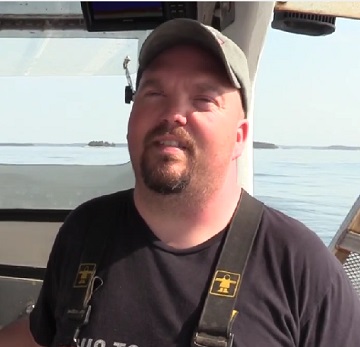
Maine Lobstermen speak out about economic and regulatory struggles
“We get told what we’re going to get paid for the product, and we get told what we’re going to be charged for the bait. We’re the ones providing, and it seems as though we’re also getting the short end of the stick,” said commercial lobsterman Dwight Staples. With rising inflation, fisherman say they’ve been hit hard. “For me personally, it was like $800 a day just to go fishing — and that was on like a three dollar lobster. So you’ve got to go, and you’ve got to catch over 250 pounds before you even break expense,” said Staples. In addition to the rising costs of running a lobster fishing business, lobstermen say that fishing regulations have made it more difficult to turn a profit, even when reeling in a good haul. Video, >click to read< 09:07
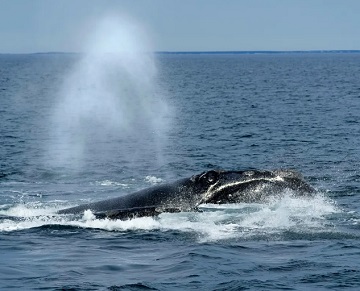
Maine: Lobstermen support better science to help right whales
The historical record of Maine lobstermen is clear.One right whale entangled in 2004 was disentangled and swam free. No right whale death has ever been attributed to Maine lobster gear. Gov. Janet Mills and our congressional delegation, without partisanship, acknowledge Maine lobstermen are not a threat to the right whale population. Despite never having seen one in the 50 years I’ve fished; I’ve made multiple changes to make my gear more whale friendly. These changes have been time-consuming, expensive, and potentially dangerous to me and my crew but resulted in less rope in the water. >click to read< 11:52
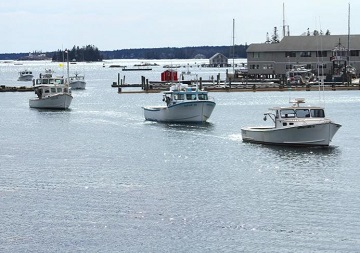
Boothbay Harbor lobster boat parade signals solidarity of Maine lobstermen
On a chilly but sunny March afternoon, on the deck of Brady’s Restaurant about a dozen Mainers, some holding beers, watched a parade of lobster boats travel through the opening of the Boothbay Harbor Footbridge and into the inner harbor, right up to Brady’s deck, horns blaring and people cheering. The lobster boats steamed toward Brady’s and in less than a span of 10 minutes, circled around and headed back through the Footbridge. The photos captured on that day show a scene that will never be reprised again. As of mid-March, Maine lobstermen are fighting back by suing the Monterey Bay Aquarium over the “red list” designation. Lots of photos, >click to read< 09:30
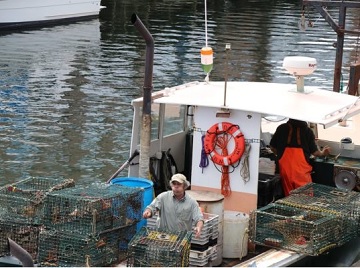
Faulkingham Pitches $1,000,000 State Contribution to Lobster Legal Defense Fund
A public hearing will be held Thursday to discuss a bill aimed at providing financial support to the Maine Lobstermen’s Association (MLA), a group that represents Maine’s lobster industry. The bill, proposed by House Minority Leader Billy Bob Faulkingham (R-Winter Harbor), would provide the MLA with a one-time contribution of $1,000,000 to offset large expenses the organization has incurred in recent years as it fights against burdensome federal regulations. Faulkingham expressed his concern for the Maine lobster industry, which he says is “under attack” and facing potentially devastating regulations and lawsuits. >click to read< 08:57
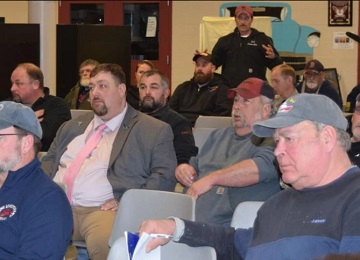
Lobstermen unhappy over proposed changes in legal size of catch
Lobstermen facing new fishing restrictions proposed by the multi-state Atlantic States Marine Fisheries Commission (ASMFC) met March 9 with Maine Department of Marine Resources (DMR) staff to hear details, ask questions and provide public comments. But the majority of the 30 lobstermen gathered in the Ellsworth High School cafeteria said don’t change anything. The meeting came the day after an online meeting was held that drew about 50 people. Winter Harbor lobsterman Herman Faulkingham said that a multi-state commission shouldn’t regulate individual fishermen in Maine. Jim Hanscom, who fishes out of Bar Harbor and is vice chairman of the Zone B Lobster Council, agreed. >click to read< 11:29

A year after record-breaking catch, value of Maine lobster landings are lowest in a decade
Maine lobstermen hauled in the least valuable lobster catch in a decade last year, when a decrease in price per pound and higher operational costs gave them less incentive to get out on the water. The $389 million haul, a 47% drop from 2021’s record-shattering catch,,, The size of the haul, 98 million pounds, was nearly identical to the 10-year low hit in 2020, when lobstermen also scaled back operations, then because of the closure of traditional markets as a result of the pandemic. Kristan Porter, a lobsterman from Cutler and president of the Maine Lobstermen’s Association, laid the blame for the drop in price per pound squarely on the economy. >click to read< 11:06
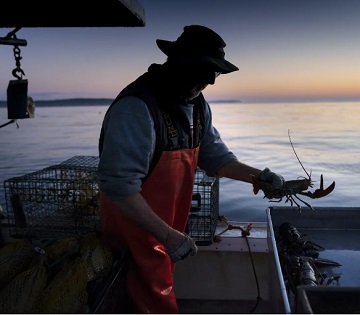
Maine lobstermen snipped by inflation as 2022 results fall nearly 50%
Fishers of Maine lobster, one of the most lucrative seafood species in the U.S., had a smaller haul during a year in which the industry battled surging fuel and bait prices, rebukes from key retailers and the looming possibility of new fishing restrictions. Maine lobster has exploded in value in recent years in part due to growing international demand from countries such as China. The industry brought about 98 million pounds of lobster to the docks worth about $389 million in 2022, Maine regulators said Friday. That was more than 11% less than the previous year, in which they harvested more than 110 million pounds of lobster worth more than $740 million. The value of lobsters also fell to a little less than $4 per pound at the docks, the lowest since 2017, a year after setting a record of more than $6.70 in 2021. >click to read< 10:33
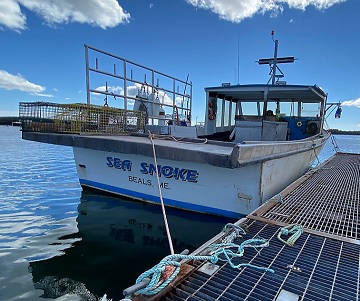
Maine lobster industry must accept that ‘big changes are coming’ despite delay in federal rules, commissioner says
“The work now is critical,” DMR Commissioner Patrick Keliher told the Lobster Advisory Council Wednesday. “The buy-in is critical. The data we’re going to be collecting over the next four years is critical. We can’t have infighting. We have to accept big changes are coming. ”Those changes could include additional regulations to make ropes weaker, a move toward ropeless lobster traps and additional restrictions on fishing grounds. Between now and then, the industry needs to report its harvest to federal officials, participate in a vessel tracking program and find ways to help monitor where endangered whales are migrating, Keliher said. >click to read< 08:49

Scientist calls 6-year delay in Maine lobster rules ‘mind-boggling’
Scientists dedicated to saving North Atlantic right whales from extinction say they are optimistic they can work with the fishing industry to save the species. But they were blindsided last month when Maine’s congressional delegation put language in the federal budget to delay for six years regulations that are designed to protect the whales. Amy Knowlton, a senior scientist at the Boston-based New England Aquarium, said the impact of a six-year delay in regulations could be “dramatic.” “It’s mind-boggling that this would be allowed to happen,” she said. But the Maine lobster industry has fought hard against new regulations designed to protect the whales, saying lobstermen aren’t to blame for the whales’ continued decline. Backed by Gov. Janet Mills and the state’s congressional delegation, the industry won a major victory with the six-year delay. >click to read< 15:20
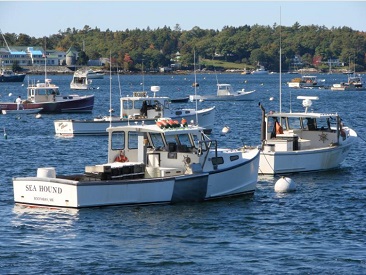
Maine lobstermen: The other endangered species?
When President Biden signs the $1.7 trillion omnibus bill into law, Maine’s lobster industry will take a six-year step back from the brink thanks to the efforts of Maine’s congressional delegation which secured a last-minute addition that put further restrictions to protect endangered right whales on hold. “The pause doesn’t mean this is over,” said Boothbay’s Troy Plummer, member of Maine Lobstermen’s Association (MLA) board of directors and lobster boat operator for nine years. “Everything is status quo until 2028, but we’ll have to do our homework,” said Boothbay Harbor’s Clive Farrin, lobsterman for more than 20 years and past president of Downeast Lobstermen’s Association. >click to read< 10:10








